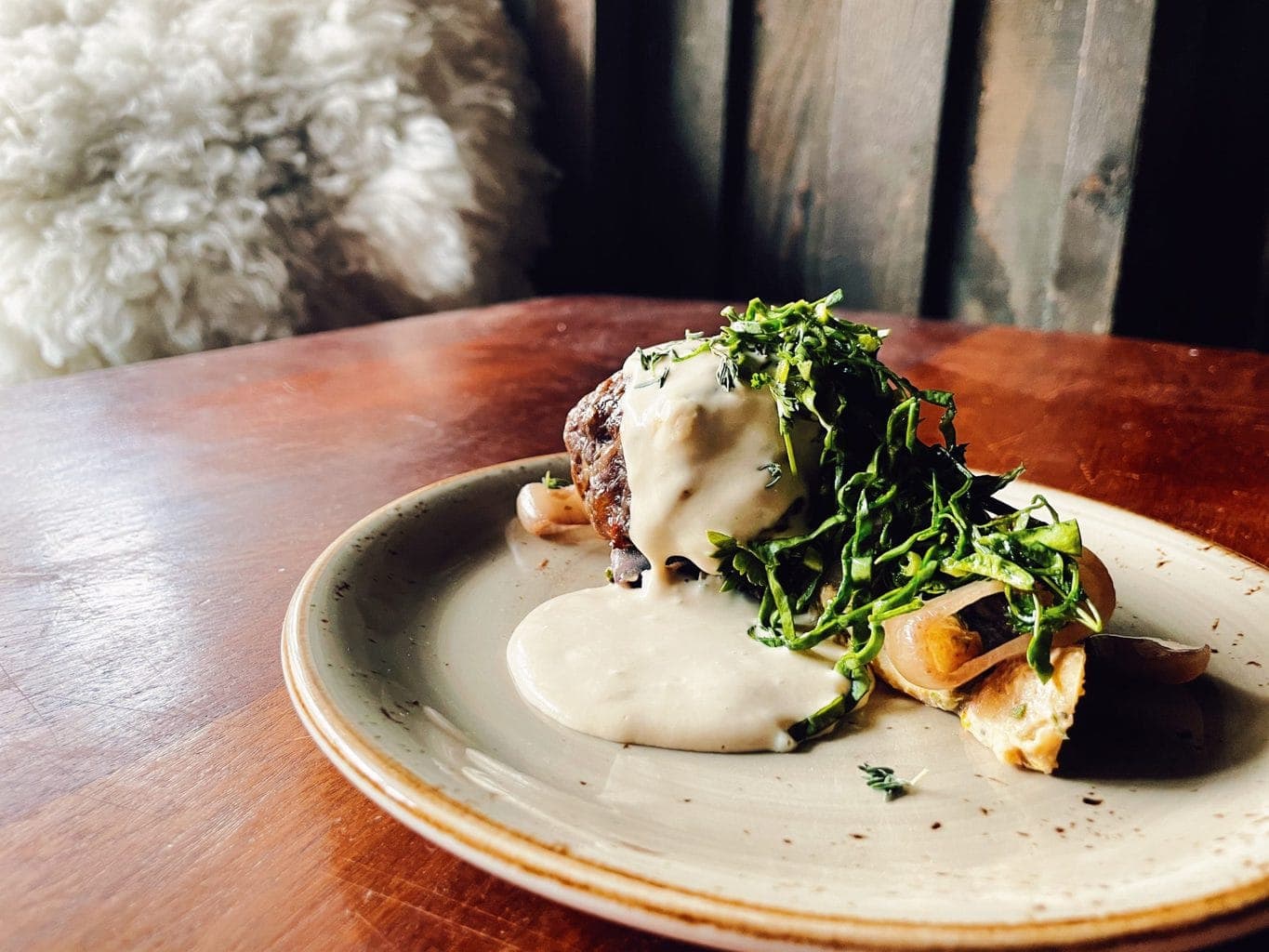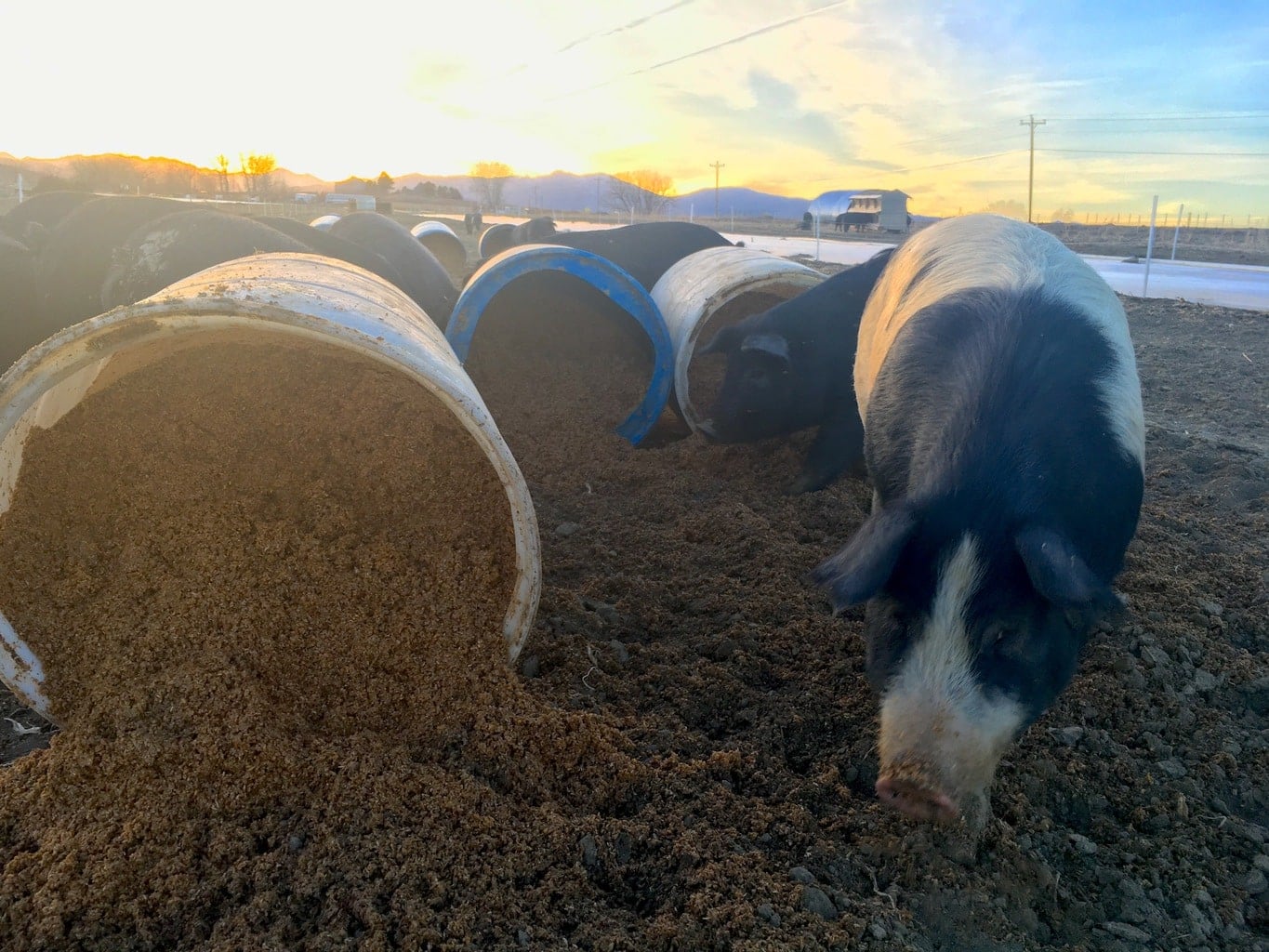
We could do without the wind — the physics that turns air tactile is not our farm friend. And we all could use more moisture, especially in the mountains. The snowier those peaks, the more reliable and abundant our summer and fall irrigation. But we will take the clement temperatures and the sun, the fresh birdsong and small bursts of green across our farm properties. And we fully embrace the reuniting of the entire farm team, which has consisted of just Noah and Sydney (champions, them) since November. Now, the daily farm-only team rises to seven people, where it shall remain until November, and we are harvesting for the restaurants and preparing for a big year ahead in the fields and the Boulder Farmers’ Market.
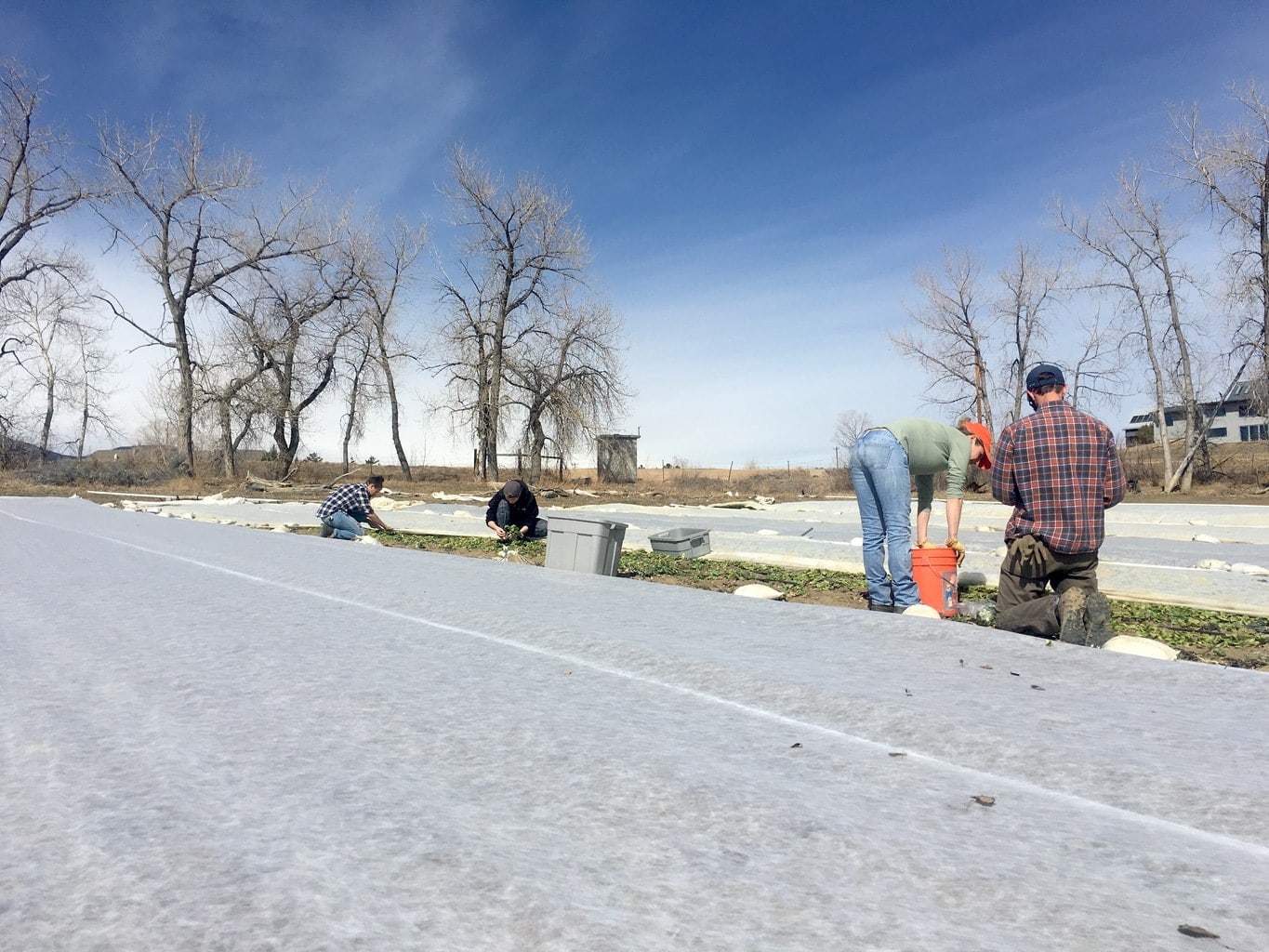
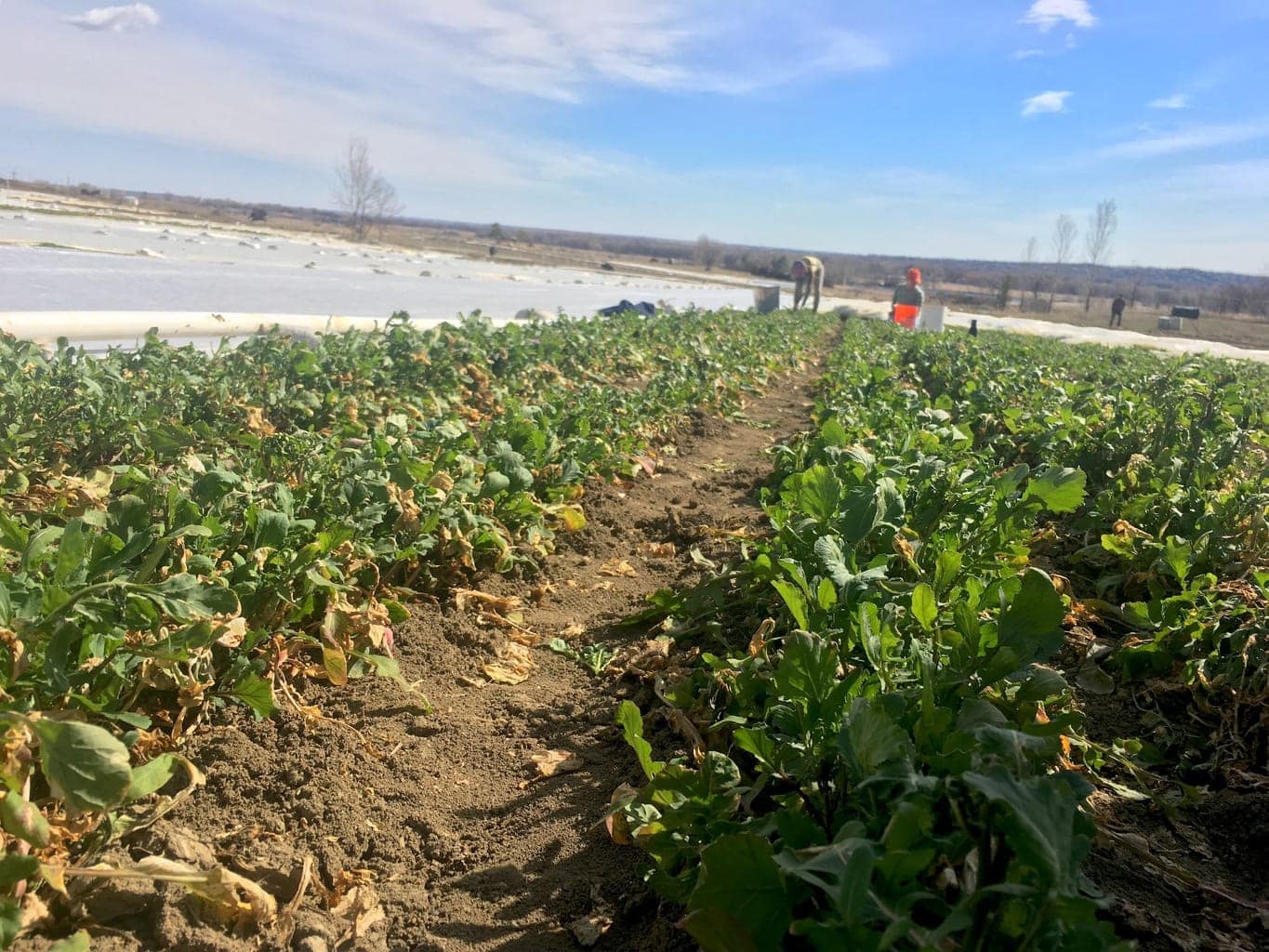
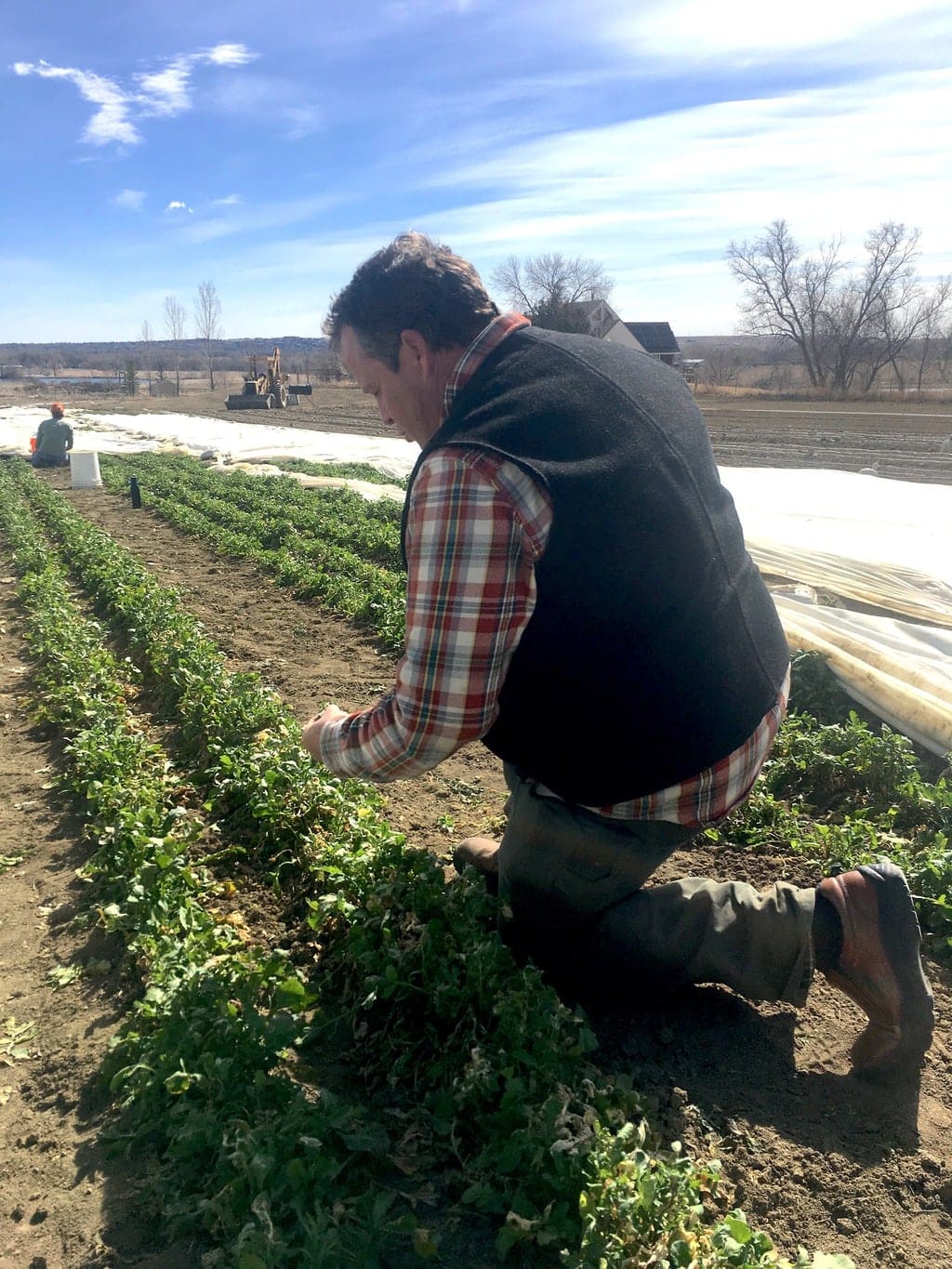
Patches of snow still dot the fields, but under row cover we find vibrant, flowering Hon Tsai Tai, which we wrote about a few weeks ago. The arugula and escarole, also dwelling beneath the row cover, is as sweet as you will find it throughout the year. Frisée, mache, kale, Swiss chard, spinach, tat soi, ruby streak mizuna, miner’s lettuce, mustard flowers —we now are harvesting it all from the cold, stirring soil.
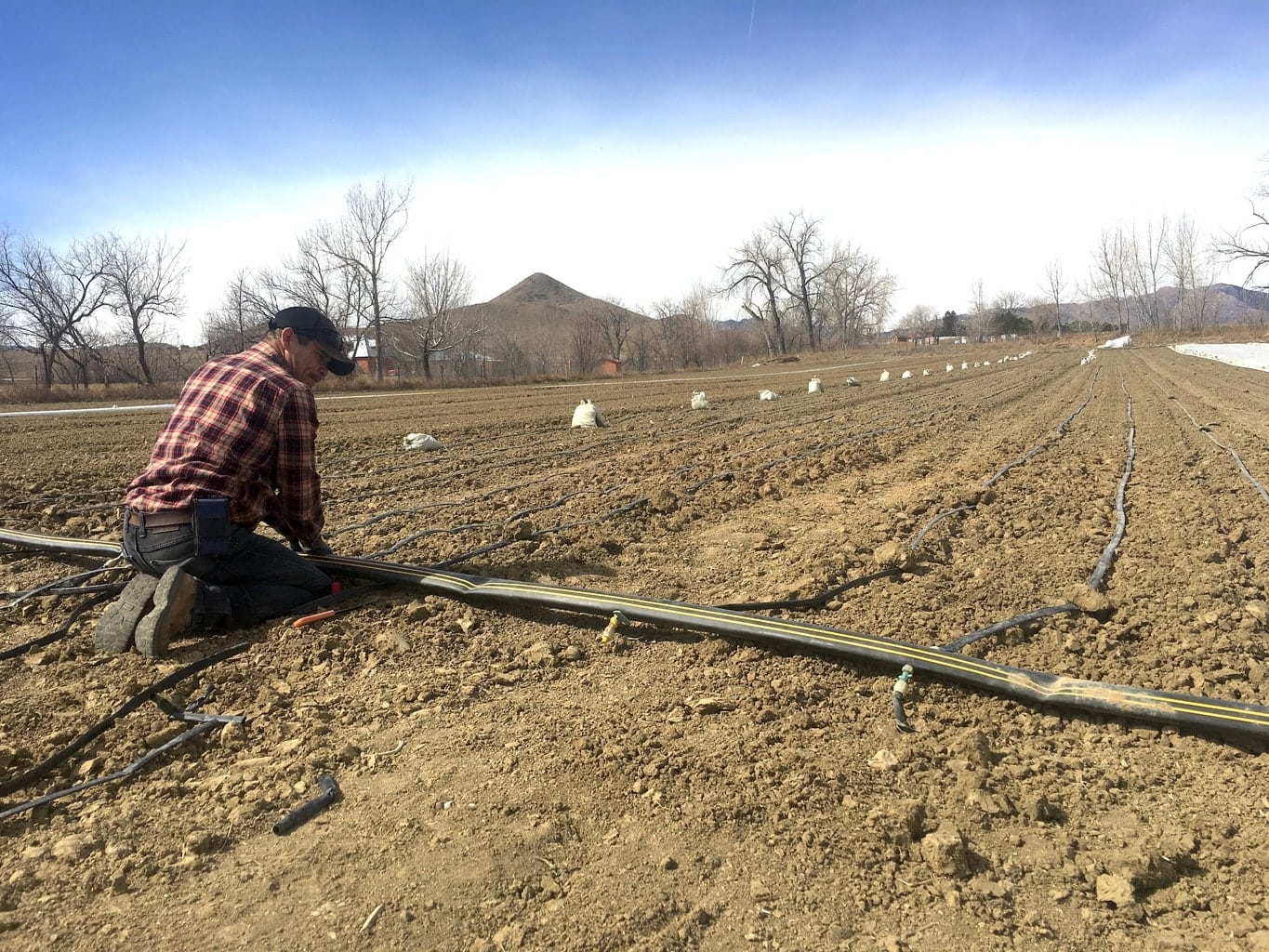
We also are organizing and prepping irrigation — everything from drip lines to overhead sprinklers. Planting from seed, which we begin in earnest soon, requires moisture. And when it hasn’t rained or snowed for a spell, and blasted physics conjures that meddlesome wind into existence, the irrigated moisture is paramount — without it, seeds just blow away. So now we prepare our irrigation systems, getting them ready for planting and the rest of the long season.
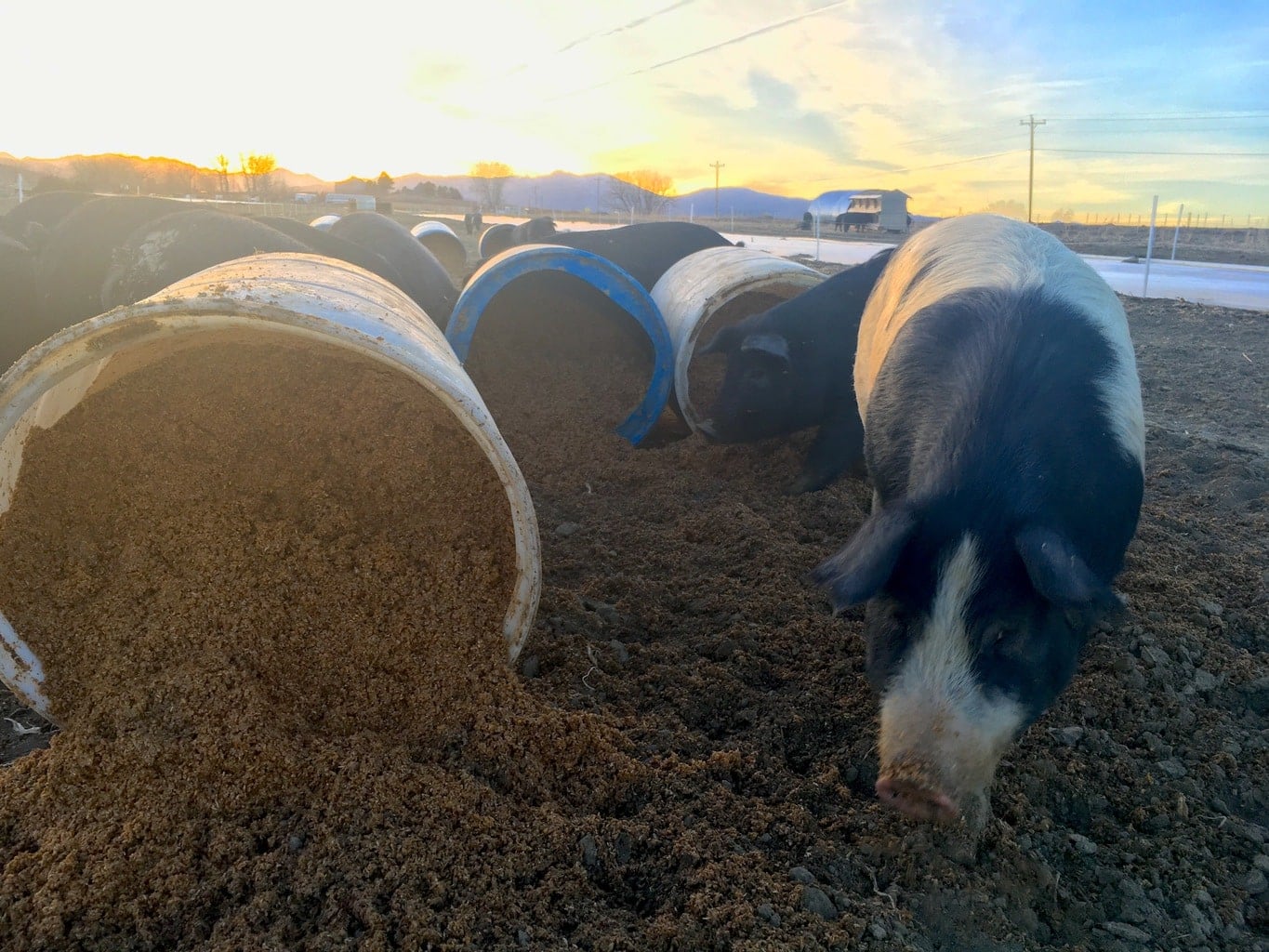
The livestock probably miss the vegetable life springing forth from every patch of earth, but thanks to our restaurants and community partners the Mulefoots do not spend the winter “feeding” on commodity grain bought online and shipped from Iowa. Instead, they dine. Wilted lettuce and carrot bottoms, for example. Soft onions and wrinkled beets and shipments of spent barley from Wibby Brewing. And while the sheep no longer savor field-fresh pasture, they enjoy the next best thing: hay harvested from their fields during the growing season.
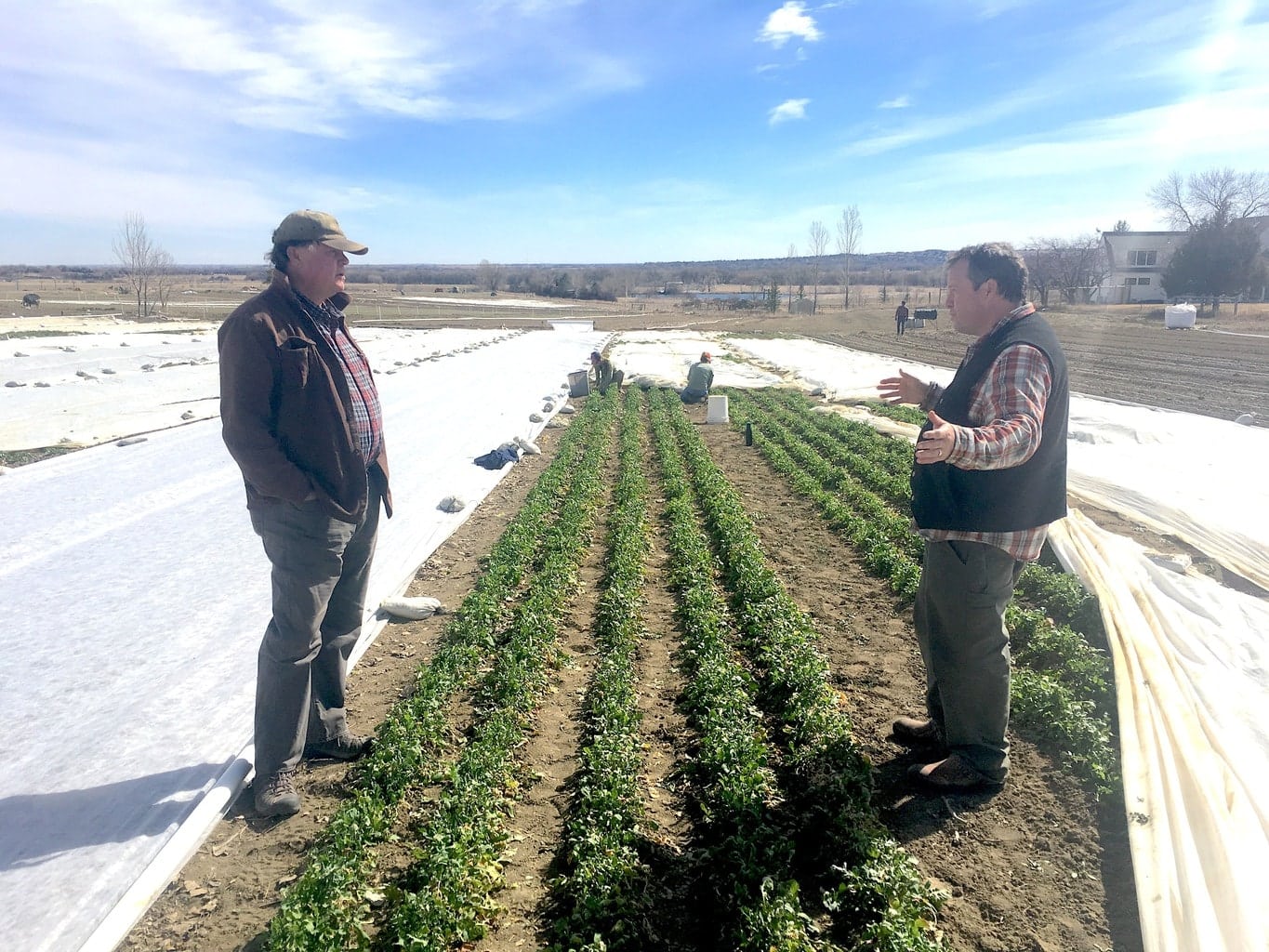
The farm operation attracts a wide range of visitors over the year, everything from buses full of school kids to journalists to chefs interested in how we so fully incorporate farming into our restaurants. Hosting other farmers is always a treat — it gives us all the opportunity to geek-out over farm equipment and practices — and we were delighted to spend time on the farm last week with Lance Hanson. Lance runs Jack Rabbit Hill winery in Hotchkiss, and was the first certified biodynamic operation in Colorado; now we, too are certified biodynamic. In addition to his wines, Lance also runs Peak Spirits, crafting some of the finest eau de vies, brandies and grappas in the state. And he added New Avalon Grower Ciders to his list of businesses — these ciders are the real deal.
We talked biodynamic at length, and look forward to seeing Lance again. And we are eager to see you in the fields sometime, too. We hope to hold increasingly more farm tours this season: piglets, old tractors, fresh corn on the cob, roosters, peppers so sweet you eat them like apples — what’s not to love? For more information about tours, stay tuned to this blog and our Facebook page — we will offer more details as the season begins to ripen. Or just call 303.444.5500.
